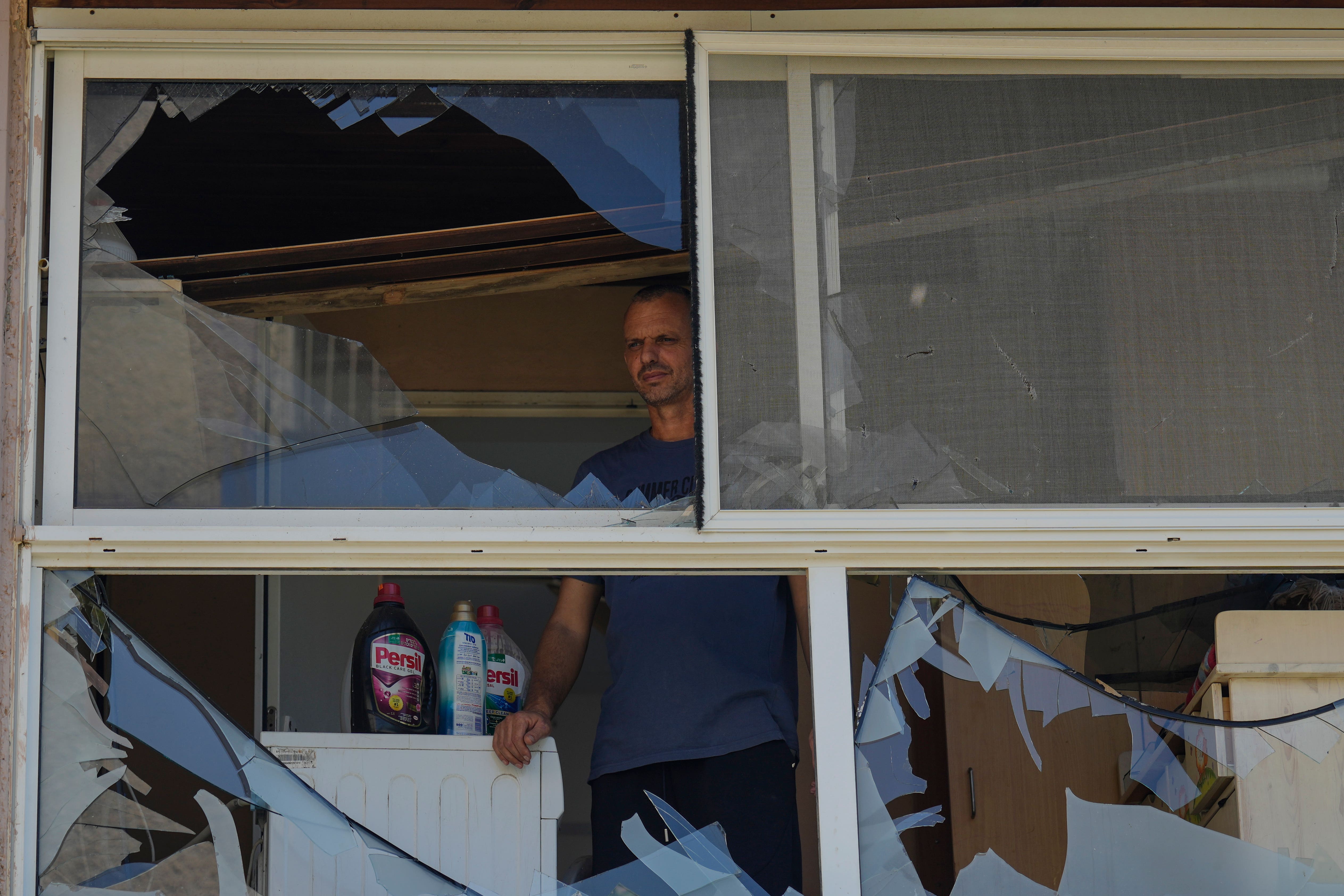UK minister urges de-escalation after Israel and Hezbollah exchange fire
Israel launched a series of air strikes against Hezbollah in southern Lebanon, while the militant group staged its own drone attacks.

Your support helps us to tell the story
From reproductive rights to climate change to Big Tech, The Independent is on the ground when the story is developing. Whether it's investigating the financials of Elon Musk's pro-Trump PAC or producing our latest documentary, 'The A Word', which shines a light on the American women fighting for reproductive rights, we know how important it is to parse out the facts from the messaging.
At such a critical moment in US history, we need reporters on the ground. Your donation allows us to keep sending journalists to speak to both sides of the story.
The Independent is trusted by Americans across the entire political spectrum. And unlike many other quality news outlets, we choose not to lock Americans out of our reporting and analysis with paywalls. We believe quality journalism should be available to everyone, paid for by those who can afford it.
Your support makes all the difference.A major war in the Middle East is “a real danger”, a Cabinet minister has warned following an escalation of hostilities between Israel and Hezbollah overnight.
Early on Sunday, the Israeli military launched what it described as “pre-emptive” strikes against the militant group in southern Lebanon, saying it had detected plans to attack Israel.
Hezbollah, an Iranian-backed group based in southern Lebanon, itself launched a series of drones against targets in Israel, saying it was acting in response to the killing of one of its top commanders in an air strike on Beirut last month.
Speaking to Sky News on Sunday, Chancellor of the Duchy of Lancaster Pat McFadden said the UK is “very concerned” by the escalation.
“Even as this unfolds, the UK Government and the international community would urge all parties not to escalate further and to avoid a major regional war. That is the real danger facing the area,” he said.
“We hope this doesn’t turn out to be that and we hope that afterwards we can de-escalate the situation.”
British ministers have been involved in an international diplomatic effort to avoid further escalation to the conflict between Israel and Hamas that erupted following the terrorist group’s attack on Israel last October.
Since coming to office last month, new Foreign Secretary David Lammy and Defence Secretary John Healey have visited the region, while Prime Minister Sir Keir Starmer warned Iran’s president in a phone call this month not to attack Israel.
Iran supports both Hamas and Hezbollah and has previously expressed a desire to make Israel “regret” an air strike on Tehran that killed Hamas leader Ismail Haniyeh.
Sunday’s outbreak of hostilities came as Egypt is hosting another round of talks aimed at securing an end to the conflict in Gaza.
Reports from the region suggest there have been no further strikes following the initial exchange of fire early on Sunday, but the situation remains tense.
British Airways and Wizz Air have cancelled flights to Tel Aviv in response to the strikes and Virgin Atlantic has delayed the resumption of flights to Israel following a “security and safety” assessment.
British Airways flights are not set to resume until Thursday at the earliest, while a Virgin Atlantic spokesman said the airline will not resume daily flights until at least September 25.